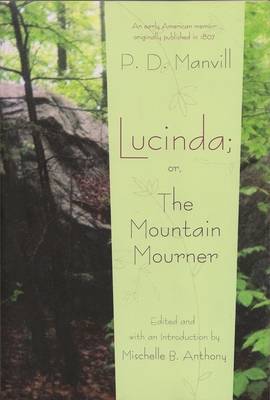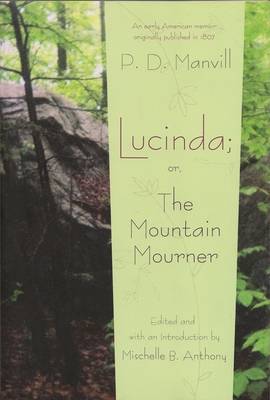
- Retrait gratuit dans votre magasin Club
- 7.000.000 titres dans notre catalogue
- Payer en toute sécurité
- Toujours un magasin près de chez vous
- Retrait gratuit dans votre magasin Club
- 7.000.0000 titres dans notre catalogue
- Payer en toute sécurité
- Toujours un magasin près de chez vous
Description
In 1807, a small rural New York press published the first edition of P. D. Manville's Lucinda; or the Mountain Mourner. Over the next five decades now fewer than ten printings of the novel appeared in three different states. In the book, the eponymous heroine is one of seven children left to the ailing and poverty-stricken widower Adrian Manvill. Although it is a memoir, Lucinda reads like a sentimental epistolary novel, where the heroine is seduced, abandoned, and then dies in isolation shortly after her illegitimate child is born. Mischelle B. Anthony's critical edition rescues this once popular cautionary tale from obscurity and positions it among such classic early American narratives as Charlotte Temple and The Coquette.
In her introduction, Anthony sheds light on the text's multiple functions among its nineteenth-century readership and draws attention to its unique status as a narrative written by a participant in the events.Spécifications
Parties prenantes
- Auteur(s) :
- Editeur:
Contenu
- Nombre de pages :
- 192
- Langue:
- Anglais
- Collection :
Caractéristiques
- EAN:
- 9780815632085
- Date de parution :
- 22-09-09
- Format:
- Livre broché
- Format numérique:
- Trade paperback (VS)
- Dimensions :
- 138 mm x 207 mm
- Poids :
- 235 g

Les avis
Nous publions uniquement les avis qui respectent les conditions requises. Consultez nos conditions pour les avis.






